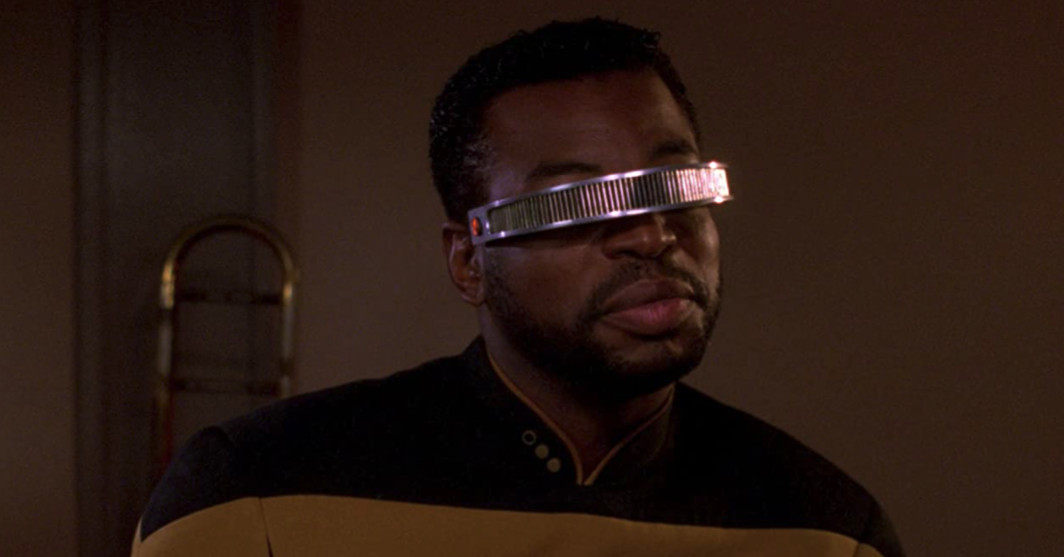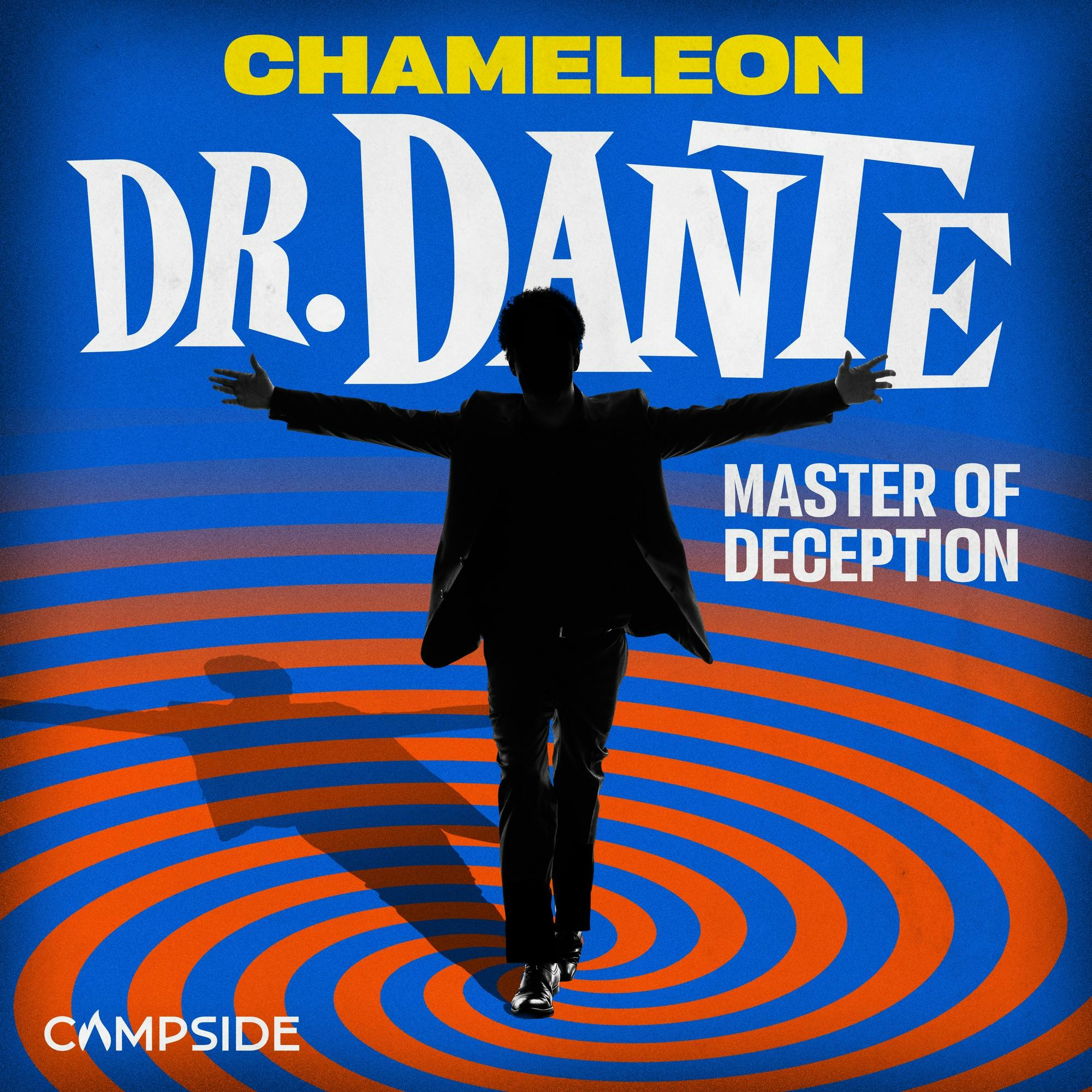Thanks for the recommendations, everyone.
You are using an out of date browser. It may not display this or other websites correctly.
You should upgrade or use an alternative browser.
You should upgrade or use an alternative browser.
What podcasts do you listen to?
- Thread starter Darrkman
- Start date
The Thinking Mans Templar
This Brother is on a WHOLE level!
Dope sample of his work.
This Brother is on a WHOLE level!
Dope sample of his work.
Been listening to these ones in the podcast rotation lately ...
- Car Talk (from the NPR network)
- O.C. Swingers
- MMA Fighting (their weekly rotation of shows)
- Listened to a good # of eps from Let it Roll

 en.wikipedia.org
en.wikipedia.org

 deadline.com
deadline.com

- Car Talk (from the NPR network)
- O.C. Swingers
- MMA Fighting (their weekly rotation of shows)
- Listened to a good # of eps from Let it Roll

Car Talk - Wikipedia

‘O.C. Swingers’ Podcast About Reality TV Star Surgeon Arrested For Rape Leads Audiochuck Podcast Slate
EXCLUSIVE: The story of a reality star orthopedic surgeon and his girlfriend who allegedly drugged and raped over 1,000 women is being explored in a new podcast series. O.C. Swingers is one of the new shows forming the slate of Audiochuck, the podcast network founded by Crime Junkie host Ashley...

HIP HOP EVOLUTION
Host Nate Wilcox is joined by Alexei Auld and Eugene S. Robinson for a series of discussions of Netflix' Hip-Hop Evolution series. Season 1 Hip-Hop Is Born In The Bronx: We Dig Hip-Hop Evolution The...
www.letitrollpodcast.com
Been catching up on more Heat Rocks episodes lately. The Nas 'Illmatic' episode was great.

Heat Rocks | Maximum Fun
maximumfun.org
Listened to the Wu Tang Clan Special episode yesterday. It originally aired in Aug. 2020.

EP153: Wu-Tang Clan Special | Maximum Fun
In honor of GZA’s birthday and the release of multiple members’ solo debut albums, we’re recutting and remastering our episodes on the Wu-Tang Clan.
55 minutes | Aug 20, 2020 Wu-Tang Clan Special
In honor of GZA's birthday and the release of multiple members' solo debut albums, we're recutting and remastering our episodes on the Wu-Tang Clan. If you like what you hear, please listen to the full conversations in the archives!

Thx Funk!Listened to the Wu Tang Clan Special episode yesterday. It originally aired in Aug. 2020.

EP153: Wu-Tang Clan Special | Maximum Fun
In honor of GZA’s birthday and the release of multiple members’ solo debut albums, we’re recutting and remastering our episodes on the Wu-Tang Clan.maximumfun.org
55 minutes | Aug 20, 2020 Wu-Tang Clan Special
In honor of GZA's birthday and the release of multiple members' solo debut albums, we're recutting and remastering our episodes on the Wu-Tang Clan. If you like what you hear, please listen to the full conversations in the archives!


The Secret Hollywood of “You Must Remember This”
We tend to get sentimental about the movies. For seven years, Karina Longworth has deconstructed the industry’s myths without losing sight of its magic.
The Secret Hollywood of “You Must Remember This”
We tend to get sentimental about the movies. For seven years, Karina Longworth has deconstructed the industry’s myths without losing sight of its magic.
By Margaret Talbot
June 28, 2021
You Must Remember This
In its latest season, the show studies the creation of the modern gossip industry.Illustration by Eleni Kalorkoti
How do you tell the truth about Hollywood, the greatest fantasy-making machine the world has ever known? One approach is to assume that the glamorous surfaces conceal something sordid, which means that exposing it will be titillating, and also sort of righteous: illusions are punctured, the rich and famous taken down a peg, and so on. Kenneth Anger’s compendium of formative celebrity scandals, “Hollywood Babylon,” first published in the United States in 1965, took that tack, as do tabloids covering Hollywood gossip. One problem with this style of revelation—in addition to its frequent misogyny and its breezy violation of privacy—is that the details are often wrong, fact checking not being a key value for the “Hollywood Babylon” school. At the other end of the spectrum, academic film scholars offer a different promise: by looking at systems of representation, they hope to reveal structural truths about how movies create meaning. Fair enough, but film studies won’t tell us what Marilyn Monroe said at a party. Then, there’s the storytelling approach, practiced by those who try to locate the truth without sniffing too disapprovingly at the dish. Today, perhaps nobody works that line with as much rigor and spellcraft as Karina Longworth, the creator, writer, and host of the Hollywood-history podcast “You Must Remember This.”
Longworth started the series in 2014, during podcasting’s adolescence. By her own account, she was less interested in the medium itself than in a chance to tell “the secret and/or forgotten histories of Hollywood’s first century,” in a format more likely to attract an audience than most books about Golden Age Hollywood do. (In 2018, Longworth did publish a book, “Seduction: Sex, Lies, and Stardom in Howard Hughes’s Hollywood,” but she remains better known for the podcast.) In the course of the show’s run, she’s produced seasons on “Dead Blondes” (Jean Harlow, Veronica Lake, Monroe), the Hollywood blacklist, and M-G-M’s stable of stars. One season focussed on Charles Manson’s bizarre adventures trying to make it as a rock musician in L.A., during which he fell in with sun-kissed celebs like Dennis Wilson, the drummer for the Beach Boys. In another, Longworth spent nineteen episodes fact-checking “Hollywood Babylon,” scandal by lurid scandal. Kenneth Anger was a pioneering, queer underground filmmaker, but in his muckraking mode he could be casually vicious, and frequently mistaken. Longworth found that the Mexican-American actress Lupe Vélez did fatally overdose while pregnant, possibly with Gary Cooper’s baby, but she did not die, as Anger claims, with her head in the toilet, vomiting up a Mexican meal. The former silent-screen heartthrob Ramon Novarro was indeed killed, in 1968, by a couple of hustlers he brought to his Laurel Canyon home, but there was no Art Deco dildo involved in the grisly murder. And Clara Bow, the original It Girl, did not have sex with the entire U.S.C. football team—full stop.
Longworth’s newest season, which began in May, chronicles the lives of the influential Hollywood gossip columnists Hedda Hopper and Louella Parsons. It’s a particularly rich subject for Longworth, since it’s concerned with how some of the stories she’s investigated in the past were manufactured, manipulated, or suppressed in the first place. Hopper and Parsons “became rich and famous in a world of men,” Longworth says in the first episode, “by selling regular people the illusion that they were taking them behind the scenes, while really they were reinforcing a system that relied on audiences having no idea how movies were really made or what stars were really like.” Longworth, too, implicitly promises to take us behind the scenes, while relying on the knowledge that many of her listeners—sophisticated consumers of celebrity gossip, simply by virtue of living in the world as it is—will be skeptical of that very idea.
Longworth, forty, is a former film critic for LA Weekly. She is married to the director Rian Johnson, who made the movies “Knives Out” and “Star Wars: The Last Jedi.” On “You Must Remember This,” her M.O. is to take a story, research widely, sift meticulously through the known and rumored versions of events, and reassemble them into a persuasive narrative. Many of these building blocks can be found in books, which Longworth cites in her show notes, and less often in the podcast itself. But she puts them together in a way that strikes you as reliable—partly because she’s transparent about what can’t be known, and partly because she’s nearly as concerned with why we think we know something as she is with the truth itself.
Why, for instance, do certain Hollywood legends stick even when they can easily be debunked? Sometimes the culprits are racism, sexism, or campaigns by studios to spin a story. But the reasons can also involve a subconscious, affective attachment to specific archetypes and myths. In her episode on Jean Harlow, Longworth refutes a persistent rumor that the platinum-blond actress, who died at twenty-six, was killed by her weekly hair bleaching. That probably is what caused her hair to fall out in clumps—after all, her formula was a mixture of peroxide, ammonia, Clorox bleach, and Lux soap flakes—but Harlow most likely died of kidney disease, which she’d suffered from since childhood. The innuendo about Harlow’s death endured, Longworth says, because “people who love Hollywood love stories about how the things Hollywood people do to become stars end up destroying them.” In her telling, the most salacious or conspiratorial version of Hollywood gossip is often the least likely to be true, but the reasons that people believe it are almost always worth exploring.
Gleeful revisionism is not Longworth’s style, either. If someone has been thrown under the bus by previous chroniclers of movie history, she will pull her out, dust her off, and send her on her way—respectful but seldom besotted. If there’s more credit to be handed out, she’ll do that, but she won’t get carried away with redemptive zeal. In one of her best seasons, Longworth reconstructed the life of Polly Platt, an art director, producer, talent whisperer, and behind-the-scenes macher who, though beloved in Hollywood, never garnered much recognition in the wider world. Platt started her career in the late nineteen-sixties, collaborating closely with her then husband, the director Peter Bogdanovich, on his first and best films, including “The Last Picture Show” and “Paper Moon.” (On the set of the former movie, Bogdanovich began an affair with the ingénue Cybill Shepherd, and left his marriage. In the meantime, Platt, who was doing the hair, makeup, and production design, continued working with Shepherd, insuring that she would look as desirable and luminous as the movie, and Platt’s husband, needed her to be.)
Father and young son looking at skyline
“Son, one day two hundred square feet of this city could be yours to rent.”
Cartoon by Amy Kurzweil
The title of the Platt season calls her an “invisible woman,” but the argument Longworth weaves in is subtler. Platt went on to make major contributions to some of the biggest successes in seventies and eighties Hollywood: “Pretty Baby,” “Terms of Endearment,” “Broadcast News.” She mentored the director Cameron Crowe, helped launch the career of Wes Anderson, and introduced the cartoonist Matt Groening to James L. Brooks, thus planting the seed for “The Simpsons.” If Platt never became quite as famous as she could have been, it’s probably because she never directed a film. And if that was because it was so hard for women to get hired, it was also, Longworth suggests, because Platt got in her own way—she had a chronic drinking problem, and backed off at least one opportunity to direct, perhaps because she had paralyzingly high expectations for herself. Besides, as Longworth reminds us, it’s only if you subscribe to the purest auteur theory—which attributes cinematic achievement almost entirely to the genius of the director—that Platt’s remarkable career can be dismissed.
Complicating the narrative without killing the vibe can be tricky. People who love Golden Age Hollywood really love it. They—and by “they” I mostly mean “we”—don’t want to see it fetishized in some unsavory way, but they don’t want to see it trashed, either. We like to summon up the shimmering shades of John Garfield or Joan Crawford when we sip our Martinis at Musso and Frank. We know the pitfalls of nostalgia, but we don’t want to lose the pleasures that old movies afford us. There are times, listening to “You Must Remember This,” when I miss a certain kind of goofball enthusiasm—something like the joy of settling in for the night when you discover that your hotel’s cable includes TCM, or the mock-heroic debate you get into with the nerdy cinéaste in the popcorn line. Although Longworth will occasionally offer a lyrical aside about an actor’s charisma, or urge listeners to watch an obscure movie that she loves, the podcast generally avoids effusiveness.
VIDEO FROM THE NEW YORKER
Listening In on the Tough Calls a FIFA Referee Must Make
But Longworth does set a mood—a little haunted, a little seductive, a little old-fashioned. As podcasts go, “You Must Remember This” has few bells and whistles. It’s basically just Longworth talking, or, actually, reading a written piece on the subject at hand. She enunciates with care, with some faint, period-specific musical cues behind her. (Actors speak some of the quotes from her subjects; this season, Julie Klausner, as Parsons, and Cole Escola, as Hopper, make particularly persuasive grandes dames.) The introduction uses Dooley Wilson singing “You must remember this . . . ” in an echoey, distorted setting; the phrase, taken from the “Casablanca” theme, seems to float to us from across the sea. “Join us, won’t you?” Longworth asks, and off we go, in our little rowboats, borne ceaselessly back into the past and all that.
Hopper and Parsons have been written about before—and we’ve seen versions of them played by Helen Mirren and Tilda Swinton, in “Trumbo” and “Hail, Caesar!” Both were from small-town, middle-class America, and both transformed themselves into capable professionals when the movie industry was new and marginal enough to make room for ambitious women. (Parsons was a script editor in the early years of silent film, Hopper an actress with a flair for extravagant hats.) But Longworth’s take on them makes an especially strong case that Hollywood history is “inextricable,” as she puts it, “from American history.” As longtime Hollywood columnists for the Hearst syndicate and the Los Angeles Times, respectively, Parsons and Hopper essentially created the template for modern entertainment coverage, with its symbiotic, often corrupting relationships and the swapping of access for fulsome treatment. For decades, a good word in one of their columns was the syrup on a mogul’s pancakes; a bad one meant a thundercloud over Burbank. Hopper, in particular, forged a style that was a precursor to a lot of online writing: as Longworth notes, she “captured the sound of a dishy, slightly ditzy friend who always had a story to tell and always seemed to walk into a room with that story in medias res.”
Both women coöperated extensively with powerful men—in Parsons’s case, the newspaper magnate William Randolph Hearst, and, in Hopper’s, the F.B.I. director J. Edgar Hoover. Parsons saw herself as the protector of Hollywood’s interests, which meant skillfully deflecting attention from the scandals that made the industry vulnerable to government censorship. (The same spirit saw studio heads voluntarily agree, in the nineteen-thirties, to abide by the Production Code, which limited the sex and violence that movies could show.) Hopper, the so-called Queen of Mean, was more politically conservative. She became a handmaiden of the blacklist, with a particular animus toward Charlie Chaplin, whom she helped Hoover to deport. She also indulged in anti-Semitism. During the production of “Gone with the Wind,” Hopper became furious that British actors (Vivien Leigh and Leslie Howard) were being cast in the roles of Scarlett O’Hara and Ashley Wilkes. Deconstructing the politics of this peculiar crusade, Longworth notes that the movie’s producer, David O. Selznick, wanted to promote “British-American relationships and mutual sympathies,” at a time when the America First crowd was warning against getting suckered by foreigners and Jews into fighting the Nazis. Hopper had it in for non-Americans and refugees—though she made an exception for Hitler’s beloved propagandist, Leni Riefenstahl, whose 1938 visit to Hollywood (three years after Riefenstahl’s “Triumph of the Will”) she defended. (Hopper found her “perfectly charming.”)
Many of the stories that Longworth tells are not about what Hopper and Parsons wrote but about what they agreed to hide—gay relationships, out-of-wedlock births, all manner of chaos in the lives of stars. Often, these omissions were made in exchange for other, less juicy scoops, or for reasons of narrow self-interest. In the late twenties, Hearst worried about the advent of sound movies because his mistress, the silent-film star Marion Davies, had a stammer; in the papers, Parsons, who had millions of readers, dutifully cast doubt on the whole idea of talkies. It’s partly because the studio system was so good, for so long, at this sort of subterfuge that Longworth can claim to be unveiling “secret” history.
In the end, “You Must Remember This” succeeds because it reveals more of the truth—or at least more of what happened, refracted through what we now believe about gender, race, and the machinations of Hollywood—than, say, Hopper or Parsons did. But some myths are left untouched. When Hollywood tells stories about itself, they tend toward the tragic—“A Star Is Born,” “Sunset Boulevard”—and historians like Longworth seem drawn to that mood, too. It’s not hard, after all, to find movieland lore about talent squandered, or white-hot ambition flaming out. Even the last episodes about the redoubtable Hopper and Parsons link fame to its eclipse. We get less than we might want about the actual work of filmmaking, and the joy that plenty of its practitioners seem to have taken in it over the years. In “You Must Remember This,” the dreams that escape or ruin us tinge the atmosphere with melancholy. This, rather than any glittering, triumphant fantasy, seems to be the Hollywood ending that secretly entrances us
I found the Open Mike Eagle podcast - DOPE

 www.brooklynvegan.com
www.brooklynvegan.com

Open Mike Eagle taps El-P for second season of 'What Had Happened Was' podcast
The second season of Open Mike Eagle's podcast will dive into El-P's career, from Company Flow to Run The Jewels. ”I was psyched to sit down with Mike Eagle and do what every artist likes to do most: talk endlessly about myself,” El says.
 www.brooklynvegan.com
www.brooklynvegan.com
LEGENDIZE w/Marley Marl.
Sports illustrated media podcast
Sports illustrated media podcast
Thanks for the recommendation.
Some of the podcasts I've recently added to the index. I've listened to some, and others are going to be played soon enough ...
- Land of the Giants
- Freaknik - A Discourse on a Paradise Lost
- Maximum Film!
- Rotten Tomatoes is Wrong
- All My Movies with Dan Murrell
- The Dose
- Unread
- Industry Interrupted
- Land of the Giants
- Freaknik - A Discourse on a Paradise Lost
- Maximum Film!
- Rotten Tomatoes is Wrong
- All My Movies with Dan Murrell
- The Dose
- Unread
- Industry Interrupted
Some ones I've added to the rotation lately ...
- Films to be Buried With
- The Ringer MMA Show
- Appointment Television
- The Filmcast (hadn't listened to them in quite some time)
- Films to be Buried With
- The Ringer MMA Show
- Appointment Television
- The Filmcast (hadn't listened to them in quite some time)
Bootleg Football Podcast
Indisputable with Dr. Rashad Richey
Indisputable with Dr. Rashad Richey
The Facebook Files, Part 1: The Whitelist - The Journal. - WSJ Podcasts
The Facebook Files, an investigative series from The Wall Street Journal, dives into an extensive array of internal Facebook documents, giving an unparalleled look inside the social media giant. In our first episode, WSJ's Jeff Horwitz explains how high-profile users from celebrities to...
The Facebook Files, Part 2: 'We Make Body Image Issues Worse' - The Journal. - WSJ Podcasts
In the second episode in our investigative series, we turn to research that Facebook has kept private: its internal studies on the effects of Instagram, one of its core products, on teen mental health. WSJ's Georgia Wells details the company's findings, which show that Instagram can be harmful...
The Facebook Files, Part 4: The Outrage Algorithm - The Journal. - WSJ Podcasts
In the fourth episode of our investigative series based on an extensive array of internal Facebook documents, we explore the fallout of a major algorithm change the company made in 2018. The documents outline how an emphasis on engagement incentivized the spread of divisive, sensational content...
The Facebook Files, Part 3: 'This Shouldn't Happen on Facebook' - The Journal. - WSJ Podcasts
In the third episode of our investigative series based on an extensive array of internal Facebook documents, we look at a persistent problem on the platform: human trafficking. WSJ's Justin Scheck describes documents showing that Facebook has closely studied how human traffickers use the...
The Facebook Files, Part 5: The Push To Attract Younger Users - The Journal. - WSJ Podcasts
In the fifth part of our series looking deep inside Facebook, we examine the company's efforts to win over young children. Reporter Georgia Wells discusses what Facebook's internal documents reveal about the company's years-long efforts to study and design products for kids. And we look ahead to...

The Facebook Files
Facebook knows, in acute detail, that its platforms are riddled with flaws but hasn’t fixed them. That’s a key finding of a Journal series that launched this week, based on an array of internal company documents. Read all the stories here.
Bumped for the end of the year discussion.

The Best Podcasts of 2021
The year produced a mix of insightful conversations, stunning personal work, and a comedic sperm-bank heist.

The 10 Best Comedy Podcasts of 2021
Featuring Aack Cast, Las Culturistas, Keeping Records, and more.

The Year in Culture
The best shows, movies, albums, books, and more, as chosen by our critics.

Podcast: This is Uncomfortable
This is a show about life and how money messes with it.
 this fool still got his website up after all thats happened(ripping off a bunch of people on Kickstarter,then ending up on the #metoo list(which he still in denial over..that so-called apology of his was insincere as hell),etc )
this fool still got his website up after all thats happened(ripping off a bunch of people on Kickstarter,then ending up on the #metoo list(which he still in denial over..that so-called apology of his was insincere as hell),etc )
You can get 1 year of the WSJ, Barrons+ Market watch for $6.00 a month. HELLUVA DEAL!
The Facebook Files, Part 1: The Whitelist - The Journal. - WSJ Podcasts
The Facebook Files, an investigative series from The Wall Street Journal, dives into an extensive array of internal Facebook documents, giving an unparalleled look inside the social media giant. In our first episode, WSJ's Jeff Horwitz explains how high-profile users from celebrities to...www.wsj.com

The Facebook Files, Part 2: 'We Make Body Image Issues Worse' - The Journal. - WSJ Podcasts
In the second episode in our investigative series, we turn to research that Facebook has kept private: its internal studies on the effects of Instagram, one of its core products, on teen mental health. WSJ's Georgia Wells details the company's findings, which show that Instagram can be harmful...www.wsj.com

The Facebook Files, Part 4: The Outrage Algorithm - The Journal. - WSJ Podcasts
In the fourth episode of our investigative series based on an extensive array of internal Facebook documents, we explore the fallout of a major algorithm change the company made in 2018. The documents outline how an emphasis on engagement incentivized the spread of divisive, sensational content...www.wsj.com

The Facebook Files, Part 3: 'This Shouldn't Happen on Facebook' - The Journal. - WSJ Podcasts
In the third episode of our investigative series based on an extensive array of internal Facebook documents, we look at a persistent problem on the platform: human trafficking. WSJ's Justin Scheck describes documents showing that Facebook has closely studied how human traffickers use the...www.wsj.com

The Facebook Files, Part 5: The Push To Attract Younger Users - The Journal. - WSJ Podcasts
In the fifth part of our series looking deep inside Facebook, we examine the company's efforts to win over young children. Reporter Georgia Wells discusses what Facebook's internal documents reveal about the company's years-long efforts to study and design products for kids. And we look ahead to...www.wsj.com

The Facebook Files
Facebook knows, in acute detail, that its platforms are riddled with flaws but hasn’t fixed them. That’s a key finding of a Journal series that launched this week, based on an array of internal company documents. Read all the stories here.www.wsj.com
You can get 1 year of the WSJ, Barrons+ Market watch for $6.00 a month. HELLUVA DEAL!
one of the funniest/fun podcasts I've listened to
big fan of the podcastt where most of the contribotors are black
for black history month they a fanasty draft of black comic book/sci-fi/ action characters (unforunately highlighting its slim pickings)
question is Picolo black?
is Optimus Prime Black?
Panthro is definately black though right?

 www.theringer.com
www.theringer.com
big fan of the podcastt where most of the contribotors are black
for black history month they a fanasty draft of black comic book/sci-fi/ action characters (unforunately highlighting its slim pickings)
question is Picolo black?
is Optimus Prime Black?
Panthro is definately black though right?

The Black Heroes of Fandom Character Draft
Van and Charles battle it out to see who drafts the best team of iconic characters
Been listening to this podcast of late. Quite funny at times - especially with the dark humor / serious tone the hosts maintain. I am unfamiliar with other work / podcasts they may have done, but I'd definitely check out other projects of theirs. The podcast was recommended by one of the co-hosts on NPR's Pop Culture Happy Hour last year.
In 1971, five children were given a tour of a chocolate factory in upper Munich. Four left the factory maimed, and one never left at all. The Candyman is a scripted podcast series investigating the harrowing events of Roald Dahl’s Charlie and the Chocolate Factory. As the hosts and tech search for justice, they are derailed by old characters, new foes, and their own ineptitude. The six-part series is written, produced, and performed by Big Big Big.

 thecandyman.buzzsprout.com
thecandyman.buzzsprout.com
In 1971, five children were given a tour of a chocolate factory in upper Munich. Four left the factory maimed, and one never left at all. The Candyman is a scripted podcast series investigating the harrowing events of Roald Dahl’s Charlie and the Chocolate Factory. As the hosts and tech search for justice, they are derailed by old characters, new foes, and their own ineptitude. The six-part series is written, produced, and performed by Big Big Big.

The Candyman
In 1971, five children were given a tour of a chocolate factory in upper Munich. Four left the factory maimed, and one never left at all. The Candyman is a scripted podcast series investigating the harrowing events of Roald Dahl’s Charlie and the ...
 thecandyman.buzzsprout.com
thecandyman.buzzsprout.com

The Secret Hollywood of “You Must Remember This”
We tend to get sentimental about the movies. For seven years, Karina Longworth has deconstructed the industry’s myths without losing sight of its magic.www.newyorker.com
The Secret Hollywood of “You Must Remember This”
We tend to get sentimental about the movies. For seven years, Karina Longworth has deconstructed the industry’s myths without losing sight of its magic.
By Margaret Talbot
June 28, 2021
You Must Remember This
In its latest season, the show studies the creation of the modern gossip industry.Illustration by Eleni Kalorkoti
How do you tell the truth about Hollywood, the greatest fantasy-making machine the world has ever known? One approach is to assume that the glamorous surfaces conceal something sordid, which means that exposing it will be titillating, and also sort of righteous: illusions are punctured, the rich and famous taken down a peg, and so on. Kenneth Anger’s compendium of formative celebrity scandals, “Hollywood Babylon,” first published in the United States in 1965, took that tack, as do tabloids covering Hollywood gossip. One problem with this style of revelation—in addition to its frequent misogyny and its breezy violation of privacy—is that the details are often wrong, fact checking not being a key value for the “Hollywood Babylon” school. At the other end of the spectrum, academic film scholars offer a different promise: by looking at systems of representation, they hope to reveal structural truths about how movies create meaning. Fair enough, but film studies won’t tell us what Marilyn Monroe said at a party. Then, there’s the storytelling approach, practiced by those who try to locate the truth without sniffing too disapprovingly at the dish. Today, perhaps nobody works that line with as much rigor and spellcraft as Karina Longworth, the creator, writer, and host of the Hollywood-history podcast “You Must Remember This.”
Longworth started the series in 2014, during podcasting’s adolescence. By her own account, she was less interested in the medium itself than in a chance to tell “the secret and/or forgotten histories of Hollywood’s first century,” in a format more likely to attract an audience than most books about Golden Age Hollywood do. (In 2018, Longworth did publish a book, “Seduction: Sex, Lies, and Stardom in Howard Hughes’s Hollywood,” but she remains better known for the podcast.) In the course of the show’s run, she’s produced seasons on “Dead Blondes” (Jean Harlow, Veronica Lake, Monroe), the Hollywood blacklist, and M-G-M’s stable of stars. One season focussed on Charles Manson’s bizarre adventures trying to make it as a rock musician in L.A., during which he fell in with sun-kissed celebs like Dennis Wilson, the drummer for the Beach Boys. In another, Longworth spent nineteen episodes fact-checking “Hollywood Babylon,” scandal by lurid scandal. Kenneth Anger was a pioneering, queer underground filmmaker, but in his muckraking mode he could be casually vicious, and frequently mistaken. Longworth found that the Mexican-American actress Lupe Vélez did fatally overdose while pregnant, possibly with Gary Cooper’s baby, but she did not die, as Anger claims, with her head in the toilet, vomiting up a Mexican meal. The former silent-screen heartthrob Ramon Novarro was indeed killed, in 1968, by a couple of hustlers he brought to his Laurel Canyon home, but there was no Art Deco dildo involved in the grisly murder. And Clara Bow, the original It Girl, did not have sex with the entire U.S.C. football team—full stop.
Longworth’s newest season, which began in May, chronicles the lives of the influential Hollywood gossip columnists Hedda Hopper and Louella Parsons. It’s a particularly rich subject for Longworth, since it’s concerned with how some of the stories she’s investigated in the past were manufactured, manipulated, or suppressed in the first place. Hopper and Parsons “became rich and famous in a world of men,” Longworth says in the first episode, “by selling regular people the illusion that they were taking them behind the scenes, while really they were reinforcing a system that relied on audiences having no idea how movies were really made or what stars were really like.” Longworth, too, implicitly promises to take us behind the scenes, while relying on the knowledge that many of her listeners—sophisticated consumers of celebrity gossip, simply by virtue of living in the world as it is—will be skeptical of that very idea.
Longworth, forty, is a former film critic for LA Weekly. She is married to the director Rian Johnson, who made the movies “Knives Out” and “Star Wars: The Last Jedi.” On “You Must Remember This,” her M.O. is to take a story, research widely, sift meticulously through the known and rumored versions of events, and reassemble them into a persuasive narrative. Many of these building blocks can be found in books, which Longworth cites in her show notes, and less often in the podcast itself. But she puts them together in a way that strikes you as reliable—partly because she’s transparent about what can’t be known, and partly because she’s nearly as concerned with why we think we know something as she is with the truth itself.
Why, for instance, do certain Hollywood legends stick even when they can easily be debunked? Sometimes the culprits are racism, sexism, or campaigns by studios to spin a story. But the reasons can also involve a subconscious, affective attachment to specific archetypes and myths. In her episode on Jean Harlow, Longworth refutes a persistent rumor that the platinum-blond actress, who died at twenty-six, was killed by her weekly hair bleaching. That probably is what caused her hair to fall out in clumps—after all, her formula was a mixture of peroxide, ammonia, Clorox bleach, and Lux soap flakes—but Harlow most likely died of kidney disease, which she’d suffered from since childhood. The innuendo about Harlow’s death endured, Longworth says, because “people who love Hollywood love stories about how the things Hollywood people do to become stars end up destroying them.” In her telling, the most salacious or conspiratorial version of Hollywood gossip is often the least likely to be true, but the reasons that people believe it are almost always worth exploring.
Gleeful revisionism is not Longworth’s style, either. If someone has been thrown under the bus by previous chroniclers of movie history, she will pull her out, dust her off, and send her on her way—respectful but seldom besotted. If there’s more credit to be handed out, she’ll do that, but she won’t get carried away with redemptive zeal. In one of her best seasons, Longworth reconstructed the life of Polly Platt, an art director, producer, talent whisperer, and behind-the-scenes macher who, though beloved in Hollywood, never garnered much recognition in the wider world. Platt started her career in the late nineteen-sixties, collaborating closely with her then husband, the director Peter Bogdanovich, on his first and best films, including “The Last Picture Show” and “Paper Moon.” (On the set of the former movie, Bogdanovich began an affair with the ingénue Cybill Shepherd, and left his marriage. In the meantime, Platt, who was doing the hair, makeup, and production design, continued working with Shepherd, insuring that she would look as desirable and luminous as the movie, and Platt’s husband, needed her to be.)
Father and young son looking at skyline
“Son, one day two hundred square feet of this city could be yours to rent.”
Cartoon by Amy Kurzweil
The title of the Platt season calls her an “invisible woman,” but the argument Longworth weaves in is subtler. Platt went on to make major contributions to some of the biggest successes in seventies and eighties Hollywood: “Pretty Baby,” “Terms of Endearment,” “Broadcast News.” She mentored the director Cameron Crowe, helped launch the career of Wes Anderson, and introduced the cartoonist Matt Groening to James L. Brooks, thus planting the seed for “The Simpsons.” If Platt never became quite as famous as she could have been, it’s probably because she never directed a film. And if that was because it was so hard for women to get hired, it was also, Longworth suggests, because Platt got in her own way—she had a chronic drinking problem, and backed off at least one opportunity to direct, perhaps because she had paralyzingly high expectations for herself. Besides, as Longworth reminds us, it’s only if you subscribe to the purest auteur theory—which attributes cinematic achievement almost entirely to the genius of the director—that Platt’s remarkable career can be dismissed.
Complicating the narrative without killing the vibe can be tricky. People who love Golden Age Hollywood really love it. They—and by “they” I mostly mean “we”—don’t want to see it fetishized in some unsavory way, but they don’t want to see it trashed, either. We like to summon up the shimmering shades of John Garfield or Joan Crawford when we sip our Martinis at Musso and Frank. We know the pitfalls of nostalgia, but we don’t want to lose the pleasures that old movies afford us. There are times, listening to “You Must Remember This,” when I miss a certain kind of goofball enthusiasm—something like the joy of settling in for the night when you discover that your hotel’s cable includes TCM, or the mock-heroic debate you get into with the nerdy cinéaste in the popcorn line. Although Longworth will occasionally offer a lyrical aside about an actor’s charisma, or urge listeners to watch an obscure movie that she loves, the podcast generally avoids effusiveness.
VIDEO FROM THE NEW YORKER
Listening In on the Tough Calls a FIFA Referee Must Make
But Longworth does set a mood—a little haunted, a little seductive, a little old-fashioned. As podcasts go, “You Must Remember This” has few bells and whistles. It’s basically just Longworth talking, or, actually, reading a written piece on the subject at hand. She enunciates with care, with some faint, period-specific musical cues behind her. (Actors speak some of the quotes from her subjects; this season, Julie Klausner, as Parsons, and Cole Escola, as Hopper, make particularly persuasive grandes dames.) The introduction uses Dooley Wilson singing “You must remember this . . . ” in an echoey, distorted setting; the phrase, taken from the “Casablanca” theme, seems to float to us from across the sea. “Join us, won’t you?” Longworth asks, and off we go, in our little rowboats, borne ceaselessly back into the past and all that.
Hopper and Parsons have been written about before—and we’ve seen versions of them played by Helen Mirren and Tilda Swinton, in “Trumbo” and “Hail, Caesar!” Both were from small-town, middle-class America, and both transformed themselves into capable professionals when the movie industry was new and marginal enough to make room for ambitious women. (Parsons was a script editor in the early years of silent film, Hopper an actress with a flair for extravagant hats.) But Longworth’s take on them makes an especially strong case that Hollywood history is “inextricable,” as she puts it, “from American history.” As longtime Hollywood columnists for the Hearst syndicate and the Los Angeles Times, respectively, Parsons and Hopper essentially created the template for modern entertainment coverage, with its symbiotic, often corrupting relationships and the swapping of access for fulsome treatment. For decades, a good word in one of their columns was the syrup on a mogul’s pancakes; a bad one meant a thundercloud over Burbank. Hopper, in particular, forged a style that was a precursor to a lot of online writing: as Longworth notes, she “captured the sound of a dishy, slightly ditzy friend who always had a story to tell and always seemed to walk into a room with that story in medias res.”
Both women coöperated extensively with powerful men—in Parsons’s case, the newspaper magnate William Randolph Hearst, and, in Hopper’s, the F.B.I. director J. Edgar Hoover. Parsons saw herself as the protector of Hollywood’s interests, which meant skillfully deflecting attention from the scandals that made the industry vulnerable to government censorship. (The same spirit saw studio heads voluntarily agree, in the nineteen-thirties, to abide by the Production Code, which limited the sex and violence that movies could show.) Hopper, the so-called Queen of Mean, was more politically conservative. She became a handmaiden of the blacklist, with a particular animus toward Charlie Chaplin, whom she helped Hoover to deport. She also indulged in anti-Semitism. During the production of “Gone with the Wind,” Hopper became furious that British actors (Vivien Leigh and Leslie Howard) were being cast in the roles of Scarlett O’Hara and Ashley Wilkes. Deconstructing the politics of this peculiar crusade, Longworth notes that the movie’s producer, David O. Selznick, wanted to promote “British-American relationships and mutual sympathies,” at a time when the America First crowd was warning against getting suckered by foreigners and Jews into fighting the Nazis. Hopper had it in for non-Americans and refugees—though she made an exception for Hitler’s beloved propagandist, Leni Riefenstahl, whose 1938 visit to Hollywood (three years after Riefenstahl’s “Triumph of the Will”) she defended. (Hopper found her “perfectly charming.”)
Many of the stories that Longworth tells are not about what Hopper and Parsons wrote but about what they agreed to hide—gay relationships, out-of-wedlock births, all manner of chaos in the lives of stars. Often, these omissions were made in exchange for other, less juicy scoops, or for reasons of narrow self-interest. In the late twenties, Hearst worried about the advent of sound movies because his mistress, the silent-film star Marion Davies, had a stammer; in the papers, Parsons, who had millions of readers, dutifully cast doubt on the whole idea of talkies. It’s partly because the studio system was so good, for so long, at this sort of subterfuge that Longworth can claim to be unveiling “secret” history.
In the end, “You Must Remember This” succeeds because it reveals more of the truth—or at least more of what happened, refracted through what we now believe about gender, race, and the machinations of Hollywood—than, say, Hopper or Parsons did. But some myths are left untouched. When Hollywood tells stories about itself, they tend toward the tragic—“A Star Is Born,” “Sunset Boulevard”—and historians like Longworth seem drawn to that mood, too. It’s not hard, after all, to find movieland lore about talent squandered, or white-hot ambition flaming out. Even the last episodes about the redoubtable Hopper and Parsons link fame to its eclipse. We get less than we might want about the actual work of filmmaking, and the joy that plenty of its practitioners seem to have taken in it over the years. In “You Must Remember This,” the dreams that escape or ruin us tinge the atmosphere with melancholy. This, rather than any glittering, triumphant fantasy, seems to be the Hollywood ending that secretly entrances us
I gotta check this out agsin
Been catching up on episodes of 60 Songs that Explain the 90s of late. Happened across the podcast feed being referenced on one of their other shows, and have enjoyed the following episodes so far ...
 podbay.fm
podbay.fm

 www.theringer.com
www.theringer.com

 www.theringer.com
www.theringer.com

 www.theringer.com
www.theringer.com
 www.theringer.com
www.theringer.com
Geto Boys—"Mind Playing Tricks On Me" from 60 Songs That Explain the '90s | Podcast Episode on Podbay
Listen to Geto Boys—"Mind Playing Tricks On Me", an episode of 60 Songs That Explain the '90s, easily on Podbay - the best podcast player on the web.
 podbay.fm
podbay.fm

‘60 Songs That Explain the ’90s’: The History of Mobb Deep’s "Shook Ones," As Explained by a Shook One
Breaking down one of the best rap songs ever by one of its best duos

How "C.R.E.A.M." Set Wu-Tang Clan’s Master Plan in Motion
The backstory of the coldest group in hip-hop history, as told through their classic 1993 single

‘60 Songs That Explain the ’90s’: The Eternal Bounce of ‘Back That Azz Up’
On today’s show, we’re headed to New Orleans for Juvenile’s classic single and Cash Money Records’ big breakout
The Ringer Archives - 60 Songs That Explain the '90s - Page 1
60 Songs That Explain the '90s on The Ringer
Been listening to this one lately. Currently have episode 3 on ... discussing Girls Gone Wild / Joe Francis era ...

 deadline.com
deadline.com

 www.audacy.com
www.audacy.com

 www.sonymusic.com
www.sonymusic.com

‘Infamous’ Podcast Featuring Stories Of Girls Gone Wild & NXIVM Set From Campside Media & Sony Music
EXCLUSIVE: The stories of Girls Gone Wild and NXIVM are to be told in a new podcast series from Campside Media, producers of the Chameleon: The Hollywood Con Queen podcast, and Sony Music Entertainment. Campside co-founder Vanessa Grigoriadis and Gabriel Sherman, special correspondent to Vanity...

A New Case: Infamous Covers The Fall Of Girls Gone Wild
Behind Every Infamous News Story Is A Journalist Trying To Hold Power To Account. Join Reporters Vanessa Grigoriadis And Gabriel Sherman As They Take An In-Depth Look At The Most Explosive Scandals Of This Century. From High-Profile Divorces To Sex Cults To The Lies That Started A War...

Infamous, New Podcast From Campside Media and Sony Music Entertainment, Examines the Most Explosive Scandals of Our Time - Sony Music
New Podcast Explores Some of the Century’s Biggest Scandals Through Eyes of Two Magazine Writers, Including Girls Gone Wild and Exclusive Interviews with NXIVM’s Allison Mack and Keith Raniere Subscribe to The Binge for All Episodes About The Girls Gone Wild Scandal Now New York, NY – November...
Been catching up on episodes of 60 Songs that Explain the 90s of late. Happened across the podcast feed being referenced on one of their other shows, and have enjoyed the following episodes so far ...
Geto Boys—"Mind Playing Tricks On Me" from 60 Songs That Explain the '90s | Podcast Episode on Podbay
Listen to Geto Boys—"Mind Playing Tricks On Me", an episode of 60 Songs That Explain the '90s, easily on Podbay - the best podcast player on the web.podbay.fm

‘60 Songs That Explain the ’90s’: The History of Mobb Deep’s "Shook Ones," As Explained by a Shook One
Breaking down one of the best rap songs ever by one of its best duoswww.theringer.com

How "C.R.E.A.M." Set Wu-Tang Clan’s Master Plan in Motion
The backstory of the coldest group in hip-hop history, as told through their classic 1993 singlewww.theringer.com

‘60 Songs That Explain the ’90s’: The Eternal Bounce of ‘Back That Azz Up’
On today’s show, we’re headed to New Orleans for Juvenile’s classic single and Cash Money Records’ big breakoutwww.theringer.com
The Ringer Archives - 60 Songs That Explain the '90s - Page 1
60 Songs That Explain the '90s on The Ringerwww.theringer.com

‘60 Songs That Explain the ’90s’: A Journey Through Ice Cube’s Good Day
The latest episode of ‘60 Songs’ digs deep into the biggest hit of Cube’s career, with an assist from guest Van Lathan

They Don’t Make One-Hit Wonders Like "Return of the Mack" Anymore
Best song of the decade? Depends on who you ask.
60 Songs That Explain the '90s - The Ringer
60 Songs That Explain the '90s on The Ringer





